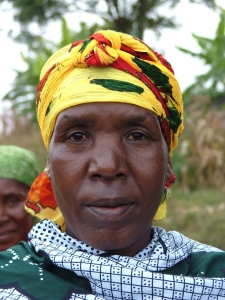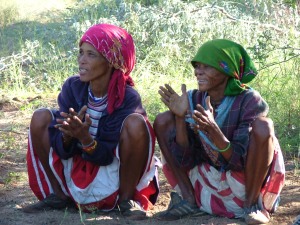(Where ‘now’ means sometime, ‘now-now’ means whenever and ‘just now’ means never.)
There is a belief that Africans have contempt for punctuality for which the term ‘African time’ has been used. African Time is slow. One hour can easily turn into two, two into four etc.
One of the biggest differences you’ll come across when travelling in Africa is the keeping of time. In the western world we are used to going through our days following a series of scheduled timetables, but the same cannot be said for most Africans. Time and schedules in Africa have a much more relaxed feel, and their laid back approach to life means they don’t need to rush.
The result of this is a lot of waiting, waiting, waiting.
A Definition of Africa Time
In the words of Wikipedia: African time (or Africa time) is the perceived cultural tendency, in most parts of Africa, toward a more relaxed attitude to time. This is sometimes used in a pejorative sense, about tardiness in appointments, meetings and events. This also includes the more leisurely, relaxed, and less rigorously-scheduled lifestyle found in African countries, especially as opposed to the more clock-bound pace of daily life in Western countries.
The Concept of Time in Africa
Africa is a huge continent with more than 50 countries and hundreds of cultures and we shouldn’t really generalise, but Africans do not understand the concept of time in the same way we do. When travelling in rural Africa, you’ll have to accept that time is not an ideal measurement. Trains can be late by a day or sometimes two, a bus may break down and it could take a day for a replacement bus to appear. More commonly it can take over an hour for your meal to arrive at the table in a restaurant. This can obviously be frustrating if you have a packed itinerary and a tight schedule.
In October 2008 The Ivory Coast Government ran a campaign with a slogan “African time is killing Africa, let’s fight it”. But should we really be fighting for a westernised approach to time or should we accept African time for what it really is. A simple and stress free way of life for African people.
Traditionally, African communities told time by reference to natural phenomena such as sunrise, sunset, the tide, the early morning cockerel crow and the sounds of birds roosting at night. These are not really very precise ways to keep track of time. Africans are not new to civilisation though. In fact, it is possible that the first clock was invented in Africa.
The first clock was invented in Africa
It is commonly believed that the first mechanical clock was invented by Levi Hutchins of Concord, New Hampshire, in 1787. However, history suggests that clocks were used by civilisations in the Middle East and North Africa approximately 5000 to 6000 years ago. Burning candles and sticks of incense were originally used to estimate the passage of time. Other better known items were sundials and hourglasses.
African Time is not peculiar to Africa
The Spanish live for “Manyara” (tomorrow) and often put off today what they could do tomorrow. Of course, they blame the afternoon heat for such procrastination. “Latin Time,” is observed in Latin America, where people are generally expected to show up not earlier than ninety minutes after the scheduled time. This trend in also common in India.
Swahili Time
Swahili time is different to African time and is observed mainly in East Africa. Swahili time starts at 6am. So if someone tells you the bus leaves at 1, he probably means 7am. If he says the train leaves at 3, that would mean 9am.
In the equatorial countries, the sun rises around six and sets around six. So 7am is actually referred to in Kiswahili as 1 o’clock. 8 am is 2 o’clock and so on. It does kind of make sense. Most people get up around or shortly before sunrise and go to bed not long after dark.
The Benefits of African Time
Africans exist in time, not for time. Their life is not defined by a ticking clock and time is not money for them. One saying goes: “When God made man, he gave the white man a watch, but he gave black man time!”
So what are the benefits of not keeping time. A more relaxed life for starters. Imagine a world where there are no deadlines, where there is no reason to rush and you are never late. This would result in less stress and fewer heart attacks. But is it realistic? Not in the 21st Century where we are controlled by an electronic world.
I think this poem by Wayne Visser sums it up.
African Time
I’m living my days in African time
I’m walking the ways of season and rhyme
I’m weaving the maze of culture and crime
I’m soaking the rays of scattered sunshine
You think that I’m slow
You think that I’m lazy
You think I don’t know
You think that I’m crazy
But I’m beating my drum to African time
I’m hearing the hum of friends on the line
I’m counting the sum of blessings I find
I’m tracing the crumbs of love left behind
You think that I’m late
You think that I’m aimless
You think I don’t rate
You think that I’m nameless
Still I’m setting my pace to African time
My life’s not a race for the clock or bell chime
I’m moving with grace on a mission sublime
I’m claiming back space for African time
Wayne Visser © 2012


